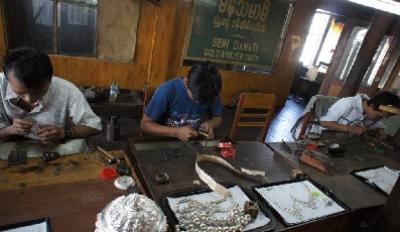
ILRF and other concerned organizations urge the Obama Administration to require concrete, measurable progress on labor and land rights and environmental protection in Burma before its trade benefits could be reinstated under the Generalized System of Preferences (GSP). In addition, the products of extractive industries and plantation agriculture should be excluded from any initial grant of GSP eligibility so a more deliberate path to GSP can be created for those sectors.
Burma’s GSP benefits were suspended in 1989 because of concerns over forced labor. The Administration has recently initiated a review at the request of the Burmese Government, which began a path to democratization in 2011. Despite the rapid changes, however, the U.S. Administration cannot yet promote trade in Burma through GSP without risking serious human rights impacts – including the very same forced labor issues that led to Burma’s suspension in the first place.
Three interconnected forms of human rights abuses are strongly linked to trade and investment in Burma. First, and most prominently, is the epidemic of land-grabbing. Millions of acres have been confiscated in recent years, with the highest rates of displacement in ethnic minority zones. Most of this land has been used for infrastructure projects or given to rich businessmen or foreign investors for agriculture or extractive operations. Second is the violation of internationally recognized workers’ rights. Although a number of unions and collective-bargaining agreements have been formed since Burma’s political transition began, the agreements are not enforced, and workers and organizers are regularly intimidated for trying to secure labor protections. Third, demonstrators and other persons trying to assert their rights are violently repressed on a regular basis. Workers protesting in hopes of securing enforcement of collective bargaining agreements have been subject to criminal complaints by their employers and have subsequently ended up in jail.
GSP is expressly connected with ongoing rights concerns, and U.S. trade policy should not undermine broader foreign policy interests and concerns. With this in mind, we recommend the following actions prior to reinstatement of GSP: the U.S. Administration require the Burmese government to make measurable progress on rights concerns, including implementing key portions of the joint strategy with the ILO to eliminate forced labor; allow full ILO access to military-controlled sites; establish an Ombudsman to protect and assist those asserting their legal rights; eliminate the pending, unjustified deadline for registering land; reform land laws; double the size of the Labor and Environmental Inspectorates; and root out corruption in the Customs Department to eliminate abuses in export licensing.
The U.S. Administration should also withhold eligibility for otherwise GSP-eligible articles that are listed on the U.S. Department of Labor 2012 List of Goods Produced by Child Labor or Forced Labor until Burma demonstrates progress on eliminating systemic abuses. The Administration can then establish an inter-agency review process to determine when the supply chain for the article in question is in substantial compliance with international human rights standards.
These recommendations were sent in joint letter to President Obama from the following organizations: ALTSEAN-Burma, Burma Campaign UK, Burma Environmental Working Group, Burma Partnership, Center for International Environmental Law, EarthRights International, Forum for Democracy in Burma, Fortify Rights, Human Rights Foundation of Monland, Institute for Asian Democracy, International Labor Rights Forum, Investors Against Genocide, Kachin Environmental Organization, Karen Environmental and Social Action Network, Karen Human Rights Group, Karenni Civil Societies Network, Land Core Group of the Food Security Working Group, Mae Tao Clinic, Maukkha Education Magazine, Network for Democracy and Development, Orion Strategies, Physicians for Human Rights, Students and Youth Congress of Burma, Tavoyan Women's Union, United to End Genocide, and US Campaign for Burma.


